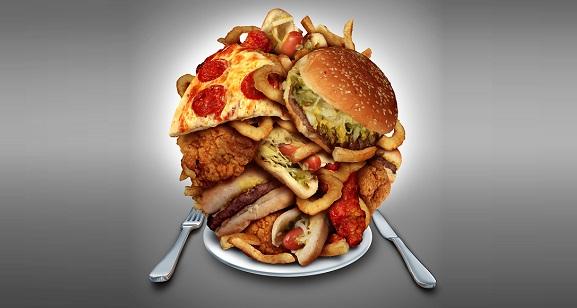Excess trans fat bad for health – Expert
Experts say trans fat is the worst of fat for health. They say too much trans-fat in the diet increases the risk of heart disease and other health problems. Trans fats are made when commercial food makers turn liquid oils into solid fats, like margarine. It can be found in many fried, “fast” packaged, or […]

Experts say trans fat is the worst of fat for health. They say too much trans-fat in the diet increases the risk of heart disease and other health problems.
Trans fats are made when commercial food makers turn liquid oils into solid fats, like margarine. It can be found in many fried, “fast” packaged, or processed foods, including anything fried and battered, stick margarine, cakes, cake mixes, pies and pie crust.
Also, animal foods, such as red meats and dairy, have small amounts of trans fats. But most trans fats come from processed foods.
Najib Panda, a nutritionist said trans fat is an unhealthy substance that is made through the chemical process of hydrogenation of oils.
“Trans fat food intake has increased tremendously as a result of westernization of diet. Besides, trans fat gives food a desirable taste and texture.
There are two broad types of trans fat found in foods such as natural occurring trans fat that are produced in the gut of some animals and foods made from these animals such as milk and meat products that contain small quantities of these fats; and artificial trans fat, or trans fatty acids, which are created in an industrial process that adds hydrogen to liquid vegetable oils to make them more solid.
Najib said trans fat raises the level of LDL cholesterol, that is bad cholesterol and lowers your HDL cholesterol level, which is good cholesterol. Hence eating trans fat increases your risk of developing heart diseases and stroke. It’s also associated with high risk of developing type 2 diabetes.
He said “The American Heart Association recommends the following to lower LDL cholesterol and some of the ways are: Eat a dietary pattern that emphasizes fruits and vegetables, whole grains, low fat dairy products, poultry, fish and nuts.
Also. limit red meat and sugary foods and beverages. Look for processed foods made with unhydrogenated oil rather than partially hydrogenated or hydrogenated vegetable oil or saturated fat.
He advised the general public to consume a variety of nutritious foods from all food groups and reduce the intake of fried, baked and saturated fat.
The body does not need or benefit from trans fats. Eating these and staying at a healthy weight can reduce your risk for heart disease, and other health problems.
Experts advise people to read nutrition labels because it is not all packaged foods that have trans fat. People should look for the words “partially hydrogenated” in the ingredient list of packaged food they eat because it means oils have been turned to solids and trans fat.
Manufacturers can show 0 grams of trans fat if there is less than 5 grams per serving, often a small serving size shows 0 grams of trans fat, but it still might be in there. If there are multiple servings in a package, then the whole package may contain several grams of trans fat.
